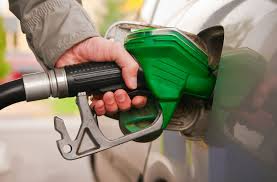Fuel prices may dip in September if oil downtrend continues
Energy Fund show that – at the current levels of the dollar/rand rate and oil prices – diesel prices may be cut slightly in September, while petrol could be hiked.

| IOL
According to the Automobile Association (AA), the petrol price could increase by around 4c a litre, while diesel may be cut by 16c and illuminating paraffin by 10c.
Petrol and diesel prices are largely determined by the oil price, as well as rand strength – given that SA must buy oil in dollars. There is still some time for September fuel prices to change, as oil and the rand fluctuate. Fuel prices are adjusted by the Department of Mineral Resources and Energy on the first Wednesday of every month.
After spiking to the highest levels in years, oil prices have cooled in recent days amid renewed concerns about the impact of the Delta Covid-19 variant on the global economy, and signs that Chinese demand may be subsiding.
Oil fell throughout the first week in August, flattened out, and subsequently fell further, the AA said. "If this trend is maintained, there is a possibility of price decreases for all fuel grades by month end. This would bring some welcome relief after last month's heavy increases."
In August, the petrol price was hiked by 91c a litre, while diesel prices were increased by more than 55c.
"The rand's average exchange rate was virtually flat against the US dollar in the first two weeks of August – it has moved less than three cents. But the local currency is trending weaker, and this may weigh more heavily against the fuel price by month-end," the AA said.
The association says the bulk of the fuel price change came from slight declines in international petroleum prices.
No fuel shortages in SA
"This should improve oil price stability throughout August," the AA says, "although it could be countered by Covis-19-related uncertainty as new variants of the disease affect economic activity worldwide."
Following the closure of the SAPREF refinery during the unrest in KwaZulu-Natal and Gauteng, fuel production has restarted again.
"We therefore don't anticipate fuel shortages related to either the refinery or bulk transport of fuel by road – indications are that the N3 corridor between KwaZulu-Natal and Gauteng is stable and has not experienced significant disruptions since it was re-opened, which is encouraging," the association said.
News Category
- International retailers
- On the move
- Awards and achievements
- Legislation
- Wine and liquor
- Africa
- Going green
- Supplier news
- Research tools
- Retailer trading results
- Supply chain
- Innovation and technology
- Economic factors
- Crime and security
- Store Openings
- Marketing and Promotions
- Social Responsibility
- Brand Press Office
Related Articles

Empowering South African households through gro...

SPAR shares practical tips to beat food inflation

South African motorists could be paying up to R...

Big VAT changes on the cards


